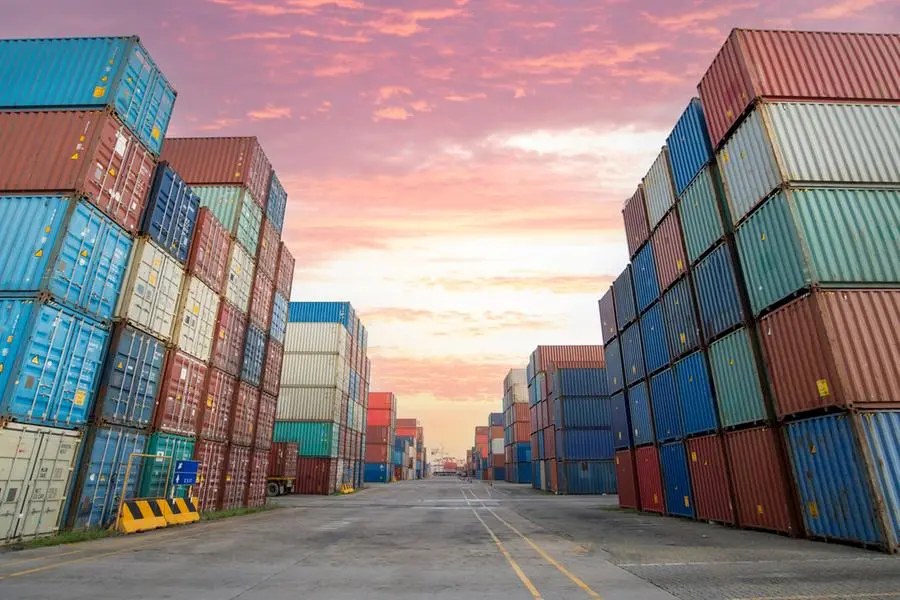PHOTO
In the logistics world, time is as critical as cost. Delays of container shipments will have a ripple effect in the market, stretching from manufacturing supply chains to retail shelves, and demonstrate the fragility of our globalised trade systems. A key response to the challenges of these nature has been the rerouting of shipping vessels.
The recent disruptions in Red Sea routes have had a profound effect on the worldwide shipping industry, leading to a general rate increase (GRI) in the market. The strategic significance of the Suez Canal and this maritime passage is fundamental for the smooth transit of goods across the globe. More than just a mere shipping lane, the canal acts as a crucial link connecting continents and economies. The challenges call for a deeper analysis of their wider impact on global shipping and logistics.
The challenging maritime incidents emphasise the Suez Canal’s vital role in the global goods movement. This waterway is more than a transit route; it links continents and economies. This significantly impacts the shipping routes, making shipping lines choose alternative paths, particularly around Africa’s Cape of Good Hope. This shift, prioritising safety, leads to delays and increased operational costs. In logistics, both time and cost are of importance. The resulting delays extend across the supply chain, from manufacturing to retail, highlighting the vulnerability of our interconnected trade systems.
The issues have forced shipping lines to reroute vessels, escalating costs and risks. Major lines like AP Moeller Maersk and Hapag-Lloyd, which together operate almost a quarter of the world’s fleet as the world’s top players, have suspended Red Sea operations, heavily affecting the global container shipping market. The leading shipping companies are now opting for the longer journey around Africa’s Cape of Good Hope.
This decision, driven by safety concerns, introduces significant delays and higher operational costs. Given the present circumstance, if it gets bad enough that all sorts of cargoes will be redirected around Africa, this could reconfigure many cargo contracts, including oil and liquefied natural gas (LNG). And prices will face upward pressure. Oil prices can have a high influence along with cargo insurance increase can bring the market price increase and this can again affect the business world.
Moreover, these developments have financial repercussions, notably in the form of increased insurance premiums and oil prices. These additional costs, arising from the extended travel distances and heightened risks, will likely permeate through various sectors of the economy, affecting both businesses and consumers. The situation also brings to the forefront the complex interplay between geopolitics and global trade. The attacks underscore the susceptibility of major trade routes to regional conflicts, adding layers of unpredictability and risk to logistics planning and operations.
Looking forward, the challenges on the Red Sea route are a call for resilience and adaptability in the shipping and logistics industry. Companies must now recalibrate their strategies to mitigate these new risks. This entails exploring alternative shipping routes, strengthening partnerships within the logistics network.
In essence, these events are not just a momentary disruption but a reminder of the need for strategic foresight, collaborative efforts, and risk management in the face of evolving global challenges. This crisis has widespread effects on various industrial sectors, with substantial parts of Europe and Mena’s imports from Asia and the Gulf being impacted. The rerouting through the Cape of Good Hope increases shipping times and costs by over 15 per cent. The situation is further compounded by rising insurance costs and the disruptions in a crucial trade route like the Red Sea, leading to delays and heightened shipping prices.
In Dubai, a key logistics hub, these developments have significant implications, reflecting the city’s strategic role in global trade. A 65 per cent increase in rates for European routes, as reported, aligns with these industry trends, highlighting the importance of adaptive strategies in logistics. The current scenario underlines the need for agility and innovative solutions in the logistics sector, especially in a dynamic trade centre like Dubai.
Financially, there’s been a surge in insurance premiums. The increase from 0.07 per cent to between 0.1 per cent to 0.15 per cent to 0.2 per cent of a ship’s value reflects the heightened risk in the region. Though the Dubai market has remained stable so far, the potential for future impact, especially on shipping and logistics operations, cannot be overlooked. Dubai, pivotal in international trade, may face alterations in operational expenses and shipping times.
Companies must adjust their strategies in response to these risks, considering alternative routes, strengthening logistics networks. These developments are not mere temporary disturbances but a reminder of the importance of strategic foresight, collaboration, and effective risk management in adapting to global challenges.
The challenges pose a test for resilience and adaptability within the shipping and logistics sector. Companies need to adapt strategies to address these risks, exploring alternative routes and fortifying their logistical networks. Companies in the UAE, a critical player in global trade, might encounter changes in operational costs and shipping durations.
The writer is MD, Time World Freight in Dubai
Copyright © 2022 Khaleej Times. All Rights Reserved. Provided by SyndiGate Media Inc. (Syndigate.info).





















